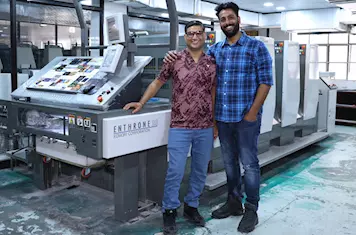Uasin Gishu Residents support modernisation of Government Press – Kenya News Agency
Residents of Uasin Gishu have expressed their support for modernisation Government Printing Press
They called for decentralisation of Government Press (GP), so that citizens can easily access services, instead of having them operated only from Nairobi.
When the taskforce led by Dr Patrick Omuthia on modernisation and transformation to a highly efficient and commercially viable government press toured Uasin Gishu, the citizens spoke.
Mr Philip Barno is a representative from the Civil Society Organisations. He said the Government Press should be modernised in order to keep up with the latest advanced publishing technologies, which will increase the capacity and efficiency of information services provided by the government.
He said that the government should be able to provide information faster and more efficiently. This would be possible with a modernised press and modern machines.
Mr Barno also called for the regional representation of the GP and noted that it should set up its offices in every county to improve the access of government information to the citizens.
David Maritim stated that the decentralisation of GP services will facilitate access to information. He also called for the upholding of integrity, accountability and transparency in the running of the media.
He further said that rebranding the government press to a state corporation will enable it to generate income besides getting allocation from the government and hence enhance its financial capacity.
The taskforce of the president was developing the road map and draft strategy and policy framework for establishing a government Press of Kenya for the Future and Policy Issues.
Dr. Omutia explained that the framework for policy and strategy envisages a government media that transcends traditional boundaries and embraces the modern world by embracing its role as the printer of choice for Government, and also embracing commercial opportunities to be exploited and created value for Kenyans.
“It pictures the modernised and transformed GP as an authoritative and agile hub for government information resources. With the robust implementation of the blueprint the GP stands poised as a strategic commercial enterprise, generating value as envisaged under the Bottom-Up Transformation Agenda,” he noted.
He said that the modernised GP will invest in high-level security printing, which will include incorporating technologies such as scan codes.
Dr Omutia stated that the GP will be able to better serve its citizens by becoming a corporation, as well as boost its financial capabilities and maintain the core value of timely service.
Abdi Hassan, head of Government Press, regretted in his remarks that the GP still operates with outdated machines, the Edinburg Press version from the 1930s, which renders it uncompetitive against the ever-changing technology.
“Since its establishment in 1895, there have been various unsuccessful attempts at ministerial level by previous administrations to modernise and transform the Government Press,” he said.
He stated that modernisation of the GP will make it stay in line with the Kenya Kwanza Administration’s Bottom-Up Economic Transformation Agenda (BETA), as it will enhance its capacity to deliver government services in a more efficient and effective manner.
He said that the GP was the primary tool the government uses for communicating with the public about its development agenda.
“It is the designated printing press for production, standardisation, dissemination, cataloguing, authenticating and preserving of various public documents for national and county governments, parliament, judiciary, parastatals and Semi-Autonomous Government Agencies (SAGAs),” said Hassan.
He said that the purchase of modern machines would allow the GP to better tap into the Kenyan publishing industry, which currently stands at about Sh 51 billion. It will also enable it to venture further into the global print market estimated at 388 billion US dollars.
“Purchasing of the modern machines will give GP upper hand to venture into the global printing market as well as the Kenyan market which has a potential of Sh 51 billion,” he said.
“Printing of exam papers, passports, ballot papers both for the country and the region, this will generate income for the country and as well as enlarging our services by providing high end secure printing and publishing solutions,” explained Hassan.
By Ekuwam Sylvester


